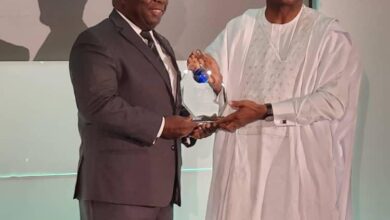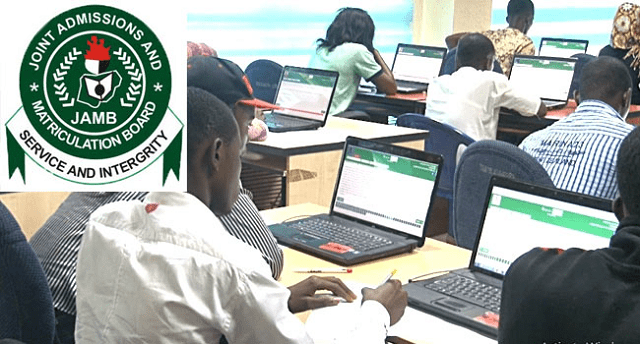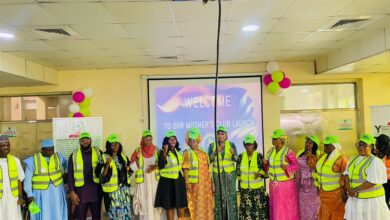
According to Wikepedia, Early Childhood Education (ECE), also known as nursery education, is a branch of education theory that relates to the teaching of children (formally and informally) from birth up to the age of eight.
The importance of early learning is entrenched in the second target of Sustainable Development Goal 4, which seeks to ensure that, by 2030, “all girls and boys have access to quality early childhood development, care and pre-primary education so that they are ready for primary education”.
To this end, pre-primary education is now considered an essential tool for achieving Universal Primary Education and the SDGs.
Early Childhood Education also called pre primary education makes use of the Early Childhood Care and Development (ECCD) curriculum which focuses on learning through play.
At the end of the 5year pre -primary years, the pupils are expected to develop skills which include eagerness to learn, boosted self-confidence, enhanced attention span, improved social skills among others.
State of ECE in Sokoto Community
In Sokoto state however, many children are deprived of this benefit due to paucity of basic facilities such as classrooms, chairs, tables and instructional materials.
A visit by our correspondent, Alice Etuka
to Bodinga, a community about 45minutes drive from the state capital, during a field trip organised by the United Nations Children’s Fund (UNICEF) gives an insight to the plight of Early Childhood Education in the state.
The Education Secretary, Bodinga Local Government Area (LGA), Lawali Mu’azu, while fielding questions from journalists, disclosed that Early Childhood Education in the community was suffering a setback due to insufficient classrooms:
“In Bodinga LGA, we have 105, basic schools, including ECCD centers. Some of the primary Schools do not have ECCD centers because of inadequate number of classrooms. We enroll them in basic level 1 when they clock 6 years.
“We have 27 Primary Schools where we have ECCD centers. Our main challenge is inadequate number of classrooms because they are small, we can’t put them outside, so we wait until they are older to enroll them”, he said.
A stop at the ECCD center in Ali Fodio Primary School Bodinga, a female teacher in her mid forties was seen making signs with her hands and singing in English and Hausa while the pupils ranging from 4 to 5 years sang after her, attempting to do the demonstrations too.
The Teacher, Mrs Binta Usman in an interview said she had 150 pupils in the classroom, however only about 40 pupils were on ground as at the time of the visit.
When asked if she was the only teacher in the center, she replied in the affirmative and as to how she copes with teaching that number of pupils, she said “managing”.
Ideally, the classroom was meant to house about 25 pupils so there can be enough room for the children to explore. Also, the teacher to pupil ratio was supposed to be 1:25.
Challenges Of ECE In Nigeria
UNICEF Education Specialist, Yetunde Oluwatosin while speaking at a media dialogue on Early Childhood Education (ECE) in Nigeria, held in Sokoto, said ECCD class rooms should be spacious.

Oluwatosin who spoke on the challenges, barriers and bottlenecks to Early Childhood Education in Nigeria stated that ECE was a specialised area that needed to be planned and costed seperately:
“In Nigeria, we have very low spending on Early Childhood Education which prevents us from doing a lot of things that should be done for them at that age.
“ECE is the foundation and we should be spending more than other sectors because, what we should be doing in education is to prevent things going wrong, not remedial education, when children get to P5 or P6.
“If we are able to get the foundation right, it gives them a smoother and seamless flow of education”, she said.
The Education expert informed that, lack of data on early learning was a major factor impeding ECE in the country, adding that, in education sector planning and analysis, data was needed to be able to drive spending; to know the number of teachers required, how many centers needed, how many teaching and learning materials needed and the number of centers that should be built.
Another impeding factor she noted was limited infrastructure. This, Ms. Oluwatosin said needed to be a major focus because the children are tender:
“Facilities within the school environment, the toilet, the taps for them to wash, the chairs that they sit on in the classroom is usually not adequate.
“What we encourage especially in play based is that the children are able to move around, because they are curious”.
Furthermore, she identified deficiency of qualified ECE teachers as a big threat to Early Childhood Education in Nigeria, adding that, “we need the work force, we need the teachers to teach the children in the classroom.
“According to the National Personnel Audit, the government has 33,214 ECCDE schools; 3.7 million children are in those schools, while the private sector has 48,348 ECCDE schools; 3.5 million children.
“The National Policy on Education places the teacher to pupil ratio at 1:25, however, this is not the obtainable in many of the schools”, the Education Expert said.
She also listed low public demand for ECE, low support for early learning, limited infrastructure and community-based offering, insufficient supply of trained teachers and inadequate ECE teaching & learning materials.
Benefits Of Early Childhood Education
Noting some of the gains of Early Childhood Education, she informed that, children who were enrolled in school early were most likely to assimmilate faster than those who were enrolled late or who do not go to school at all.
Additionally, “research has shown us that children who attend quality Early Childhood Education perform better in academics and they have a total potential.
“Research has also shown us that children who attend quality Early Childhood Education perform better in academics and they have a greater earning potential as they grow”, she stated.

She said that quality Early Childhood Education creates improved economic outcome for children in life as the child develops capacity to relate to others, learn and solve problems through it.
UNICEF’s Stand And Efforts
In her goodwill message at the media dialogue, UNICEF Sokoto Chief Of Field Office, Maryam Darwesh Said stated that the Federal Government of Nigeria has an Integrated Early Childhood Development (IECD) Policy, a multi-sectoral policy that comprises the education, health, nutrition, and child protection sectors.
According to her, “this policy aims to create an enabling environment for the provision of integrated ECD services and coordination mechanisms among sectors at decentralized levels.
“Nigeria has made some progress in the implementation of this policy. Despite the progress, there are still some challenges which include low awareness and understanding of the importance of ECD, poor articulation and clarity of the policy, weak coordination among the relevant Agencies, and most importantly poor funding”.
Said disclosed that UNICEF considered early childhood as the most rapid and critical period of development in a human life.
She further noted that, although individual children develop at their own pace, all children progress through an identifiable sequence of physical, cognitive, and emotional growth.
She also informed that, “development of the brain in the early years is a pathway that affects physical and mental health, learning, and behavior throughout the life cycle.
“Children who participate in well-conceived ECD programmes tend to be more successful in later school, and are more competent socially & emotionally, as well as show higher verbal, Intellectual and physical development during early childhood than those who are not enrolled into such programme.
“Going by the number of public primary schools, many children are not accessing pre-primary education.
“Therefore, pre-primary education remains a priority in UNICEF programming with Government in Nigeria”.
In addition, UNICEF informed that it had provided support for School Based Management Committee (SBMCs) to increase parental and community
engagement in ECE.
Disturbing Statistics
UNICEF Education Specialist, Yetunde Oluwatosin disclosed that over 1 in 3 children (representing 36%), ages 3-4 attend Early Childhood Education in Nigeria, while fewer than that attend on a global scale.
She noted that, only 1 in 4 children (representing 24%) In West and Central Africa attend Early Childhood Education.
She further informed that, at least 10 million children were not enrolled in ECE and large inequalities persist between the poorest children as they account for only 8% against 78% enrollment in children from rich homes.
Oluwatosin revealed that 2 in 3 children were engaged in learning at home but 2 in 5 of those children were not developmentally on track.
She listed factors that contribute to the child having quality Early Childhood Education to include a stimulating environment, adequate nutrients and social interaction through which the child develops capacity to relate to others, learn and solve problems.






